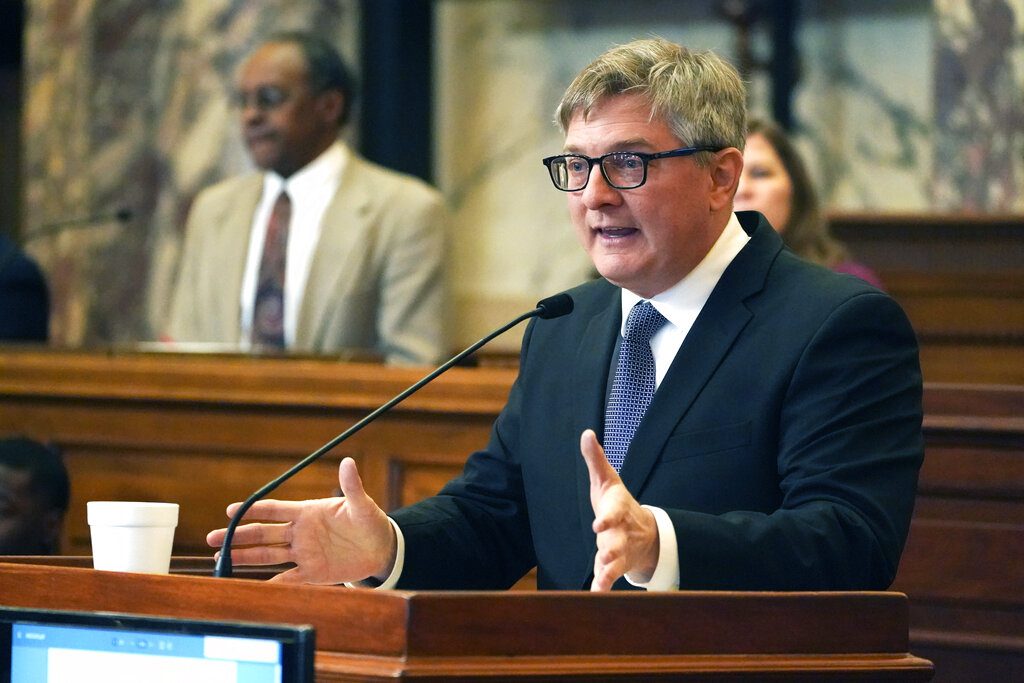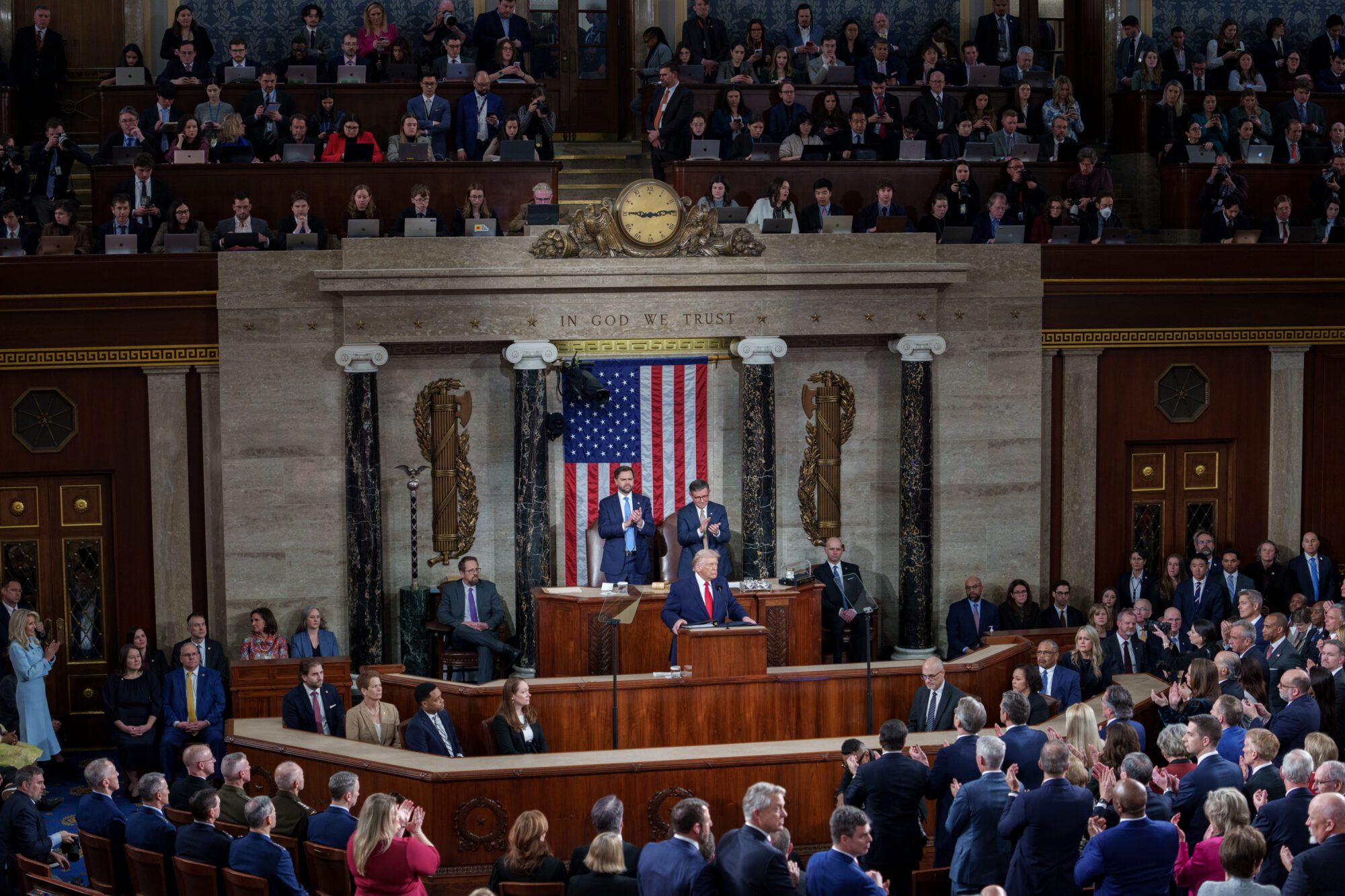Mississippi’s two major political parties are promoting the election bids of their respective candidates in starkly different ways, and the contrast is based mostly on money.
The Mississippi Republican Party has helped buy slick campaign ads that paint a negative picture of Democratic opponents. The party also has given hefty financial contributions to its candidates, spreading around the nearly $1.9 million it received from Gov. Haley Barbour’s campaign fund.
“We’ve got some great candidates for statewide office and we’re just trying to do what we can to support them,” said state Republican Party chairman Jim Herring.
At the other end of the spectrum is the Mississippi Democratic Party, which is short on cash and has turned to other methods to disseminate its candidates’ messages.
A fellowship breakfast for ministers, a quarterly newspaper and “Beans and Greens” fundraisers in every county are among the ways Democrats are reaching voters before the Nov. 6 general election, said state Democratic Party chairman Wayne Dowdy.
“The Democratic Party, unfortunately, does not have the resources that our opposition has. We have not supported them financially like I had hoped to,” Dowdy told The Associated Press in a telephone interview.
Calling on high-profile national leaders to stump for them is something that hasn’t been done by Democrats or Republicans.
In 2003, President Bush made appearances in Southaven and on the Gulf Coast to stump for Barbour, who was challenging Democratic Gov. Ronnie Musgrove. Barbour’s campaign isn’t saying whether Bush will appear in Mississippi again this year.
That’s not surprising, said John Bruce, a political science professor at the University of Mississippi.
“Four years ago, he would have made a great guy to come in and campaign for you. Even in Mississippi, his approval rating has sagged,” Bruce said. “He may not be the guy you want to bring in for a high-profile kind of visit.”
Likewise, Democrats might not want to get a national party leader to stump for them because they don’t want to alienate the Republican voters who are needed for a candidate to win an office in Mississippi, said Bruce.
“The last election cycle, you saw a lot of Democrats run for office, not saying they were Democrats, but saying they were conservatives,” said Bruce.
Dowdy said a fellowship breakfast this past weekend allowed candidates to outline their plans to church pastors, who are key community leaders.
Ministers from across the state were invited to join Democratic candidates Saturday for the breakfast at the Country Fisherman restaurant in Jackson.
Pastor Jesse Sutton of New McRaven Hills Missionary Baptist Church was invited. He said he had already been to two events hosted by Republican Gov. Haley Barbour and Barbour’s Democratic challenger, John Arthur Eaves Jr.
Sutton said he has allowed several candidates, both Democrat and Republican, to introduce themselves to his 400-member congregation. Eaves and his family worshipped one recent Sunday at New McRaven Hills, the minister said.
“So far as me trying to influence or direct someone in a particular way, we can’t do that in church,” Sutton said. “My main role is to try to keep them as educationally sound as possible.”
Democratic Party spokesman Terry Cassreino said the party’s quarterly newspaper is another informational tool. Among its headlines are “Democratic Party will restore integrity” and “A closer look at Republican incompetence.” The paper is distributed throughout neighborhoods that volunteers canvass, Cassreino said.
In the past year, the Democratic Party has been in the spotlight for various litigation, but neither Bruce or Cassreino believes it will have an impact on candidates’ races.
U.S. District Judge Tom S. Lee ruled in June that the Noxubee County Democratic Executive Committee and its chairman, Ike Brown, “manipulated the political process” by impeding participation of white voters. The suit was filed by the U.S. Justice Department.
The state Democratic Executive Committee sought to remove Insurance Commissioner George Dale from the party ballot earlier this year, arguing he shouldn’t run under the party label because he publicly supported President Bush for re-election in 2004. In May, a Calhoun County circuit judge reversed the decision and put Dale back on the Aug. 7 primary ballot.
Dale was defeated by Gary Anderson in the primary. Anderson faces Republican state Sen. Mike Chaney in the general election.
In another suit filed by the party, U.S. District Judge W. Allen Pepper ruled that Mississippi must restructure its party system, but he also ordered that the state require voters to present voter identification at the polls. Democrats had sought to keep nonmembers from voting in Democratic primaries.
That suit is on appeal to the 5th U.S. Circuit Court of Appeals.
Herring believes the lawsuits could help Republican candidates. He said the Dale case could have an impact “in the sense it has gained the attention of people of the attempt to keep conservative Democrats off the ticket.”







